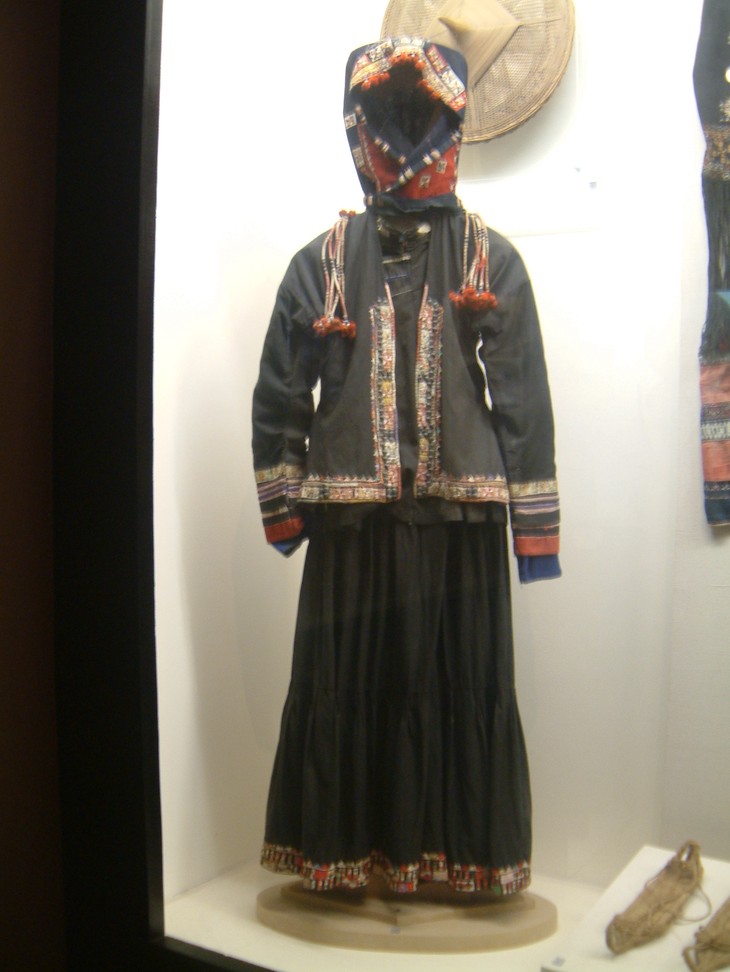(VOVworld) - The Pu Peo are an ethnic minority group in the mountainous province of Ha Giang. Their costumes exhibit beautiful color combinations.
 |
| Clothes of the Pu Peo displayed at the Vietnam Museum of Ethnology in Hanoi |
Pu Peo men usually wear an indigo shirt and pants. Women wear long dresses and two shirts with the outside shirt open in the front and the inside shirt buttoned on the right side. The Pu Peo don’t embroider their clothes but decorate them with pieces of colorful cloth. They sew colorful stripes on sleeves, hems of dresses, and headscarves. Cloth pieces with triangle, diamond, and rectangle shapes are collaged to create images of the sun and the cockscomb, their religious symbols. Trang Thi Mai, a Pu Peo, says: “The Pu Peo’s costumes look plain but they are sophisticatedly made. Making the fringe of the dress is the most difficult. In the past men wore long dresses, but now they wear shirts and pants. Women wear black headscarves with red, green, purple, and yellow patterns.”
Pu Peo women tie their hair with a wooden comb and cover it with a headscarf. Cung Thi Xuan, who lives in Pho Moi hamlet, Pho Bang town, says: “A set of women’s clothes consists of two dresses, two shirts, two brassieres, a comb, and two headscarves. The highlight of the black dress is its colorful fringe. They sew colorful patterns on the dress instead of weaving or embroidering like other groups.”
Red and blue are the two main colors of the Pu Peo’s clothes. Red symbolizes the man and the woman’s respect for the man, the pillar of the family. Blue symbolizes the woman. Luc Thi Hue lives in Pho Moi hamlet: “The most difficult part is to sew the fringe of the dress and the stripes on the sleeves. It takes a lot of time to arrange and sew small patterns.”
In recent years Pu Peo women cut flowers and other shapes from printed textiles and sew them on their clothes. While diversifying the decorations, they have kept all the typical designs and features of their traditional costumes.